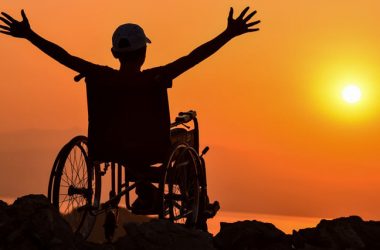Lately, I have been reading a bit more of the law and what it desires for persons with a disability and enjoins us and the state to do for them. Otiko Djaba put the assignment on me when she invited me as a guest on her very special commendable Let’s Talk Ability TV show.
They had questions about the difficulties they face daily including in seeking public transport to how they are chained at faith centres and sometimes killed over superstitious claims.
I was happy quoting the law and stressing how people violated their rights etc. I saw the expressions of joy and, at the same time, utter shock at the revelations including that it is an offence to abuse and call them derogatory names.
I was upset when a musician sought to encourage his followers that it was okay to mock people on account of their disability. I pointed out that the offence attracts up to ¢6000.00 plus a possible three months in jail.
It is sad that this is something we must refrain from for fear of punishment. If this life is difficult for you, can you imagine what it is for someone who can’t see, hear, talk, stand or walk if they had legs or use their hands if they had one? Well, find out how many disabled persons were born with their conditions, if you don’t know how many such conditions were painfully acquired on the Tema Motorway, at poorly resourced government hospitals, in the hands of a bad or half-baked physician, at work or even at home.
The law commands that operators of commercial transport must reserve at least two seats for persons with disability (PWDs) and that they may allow other passengers occupy these seats only when the vehicle is full without a PWD in sight. By law, this and acts such as refusing to stop for a PWD to cross the road are punishable with fines and prison terms. How many of us don’t park at the few spaces designated for PWDs at the restaurant car park?
We passed the PWD Act some thirteen years ago, but sometimes it seems we forget that we gave ourselves a ten-year moratorium to ensure that buildings and public facilities will be accessible to PWDs.
This law and the Constitution are emphatic about the support and special attention and treatment PWDs deserve in their socioeconomic, healthcare and educational lives. But these are observed more in the breach than compliance for engendering a happy society.
Individual citizens and even some families may be making life hell for PWDs, but how much has the state done to enforce the law? Let’s make it easier and human for them to access healthcare by complying with the requirements of the law for specialised training for health professionals, and to ensure a deaf and dumb patient has the same chance to be fully understood when she visits a health facility.
The pastor or traditional priest who chains a PWD to a tree and leaves them in the sun and cold must face the law also for starving them and causing them never-healing sores.
They must, together with heartless families, answer murder charges for the advice rooted in superstition on the basis of which PWDs are harmed and killed.
The council for PWDs needs every support to ensure dignified treatment for PWDs in Ghana. The way we treat PWDs must reflect who we really are as individuals and a nation.
By Samson Lardy ANYENINI
Source: myjoyonline.com






